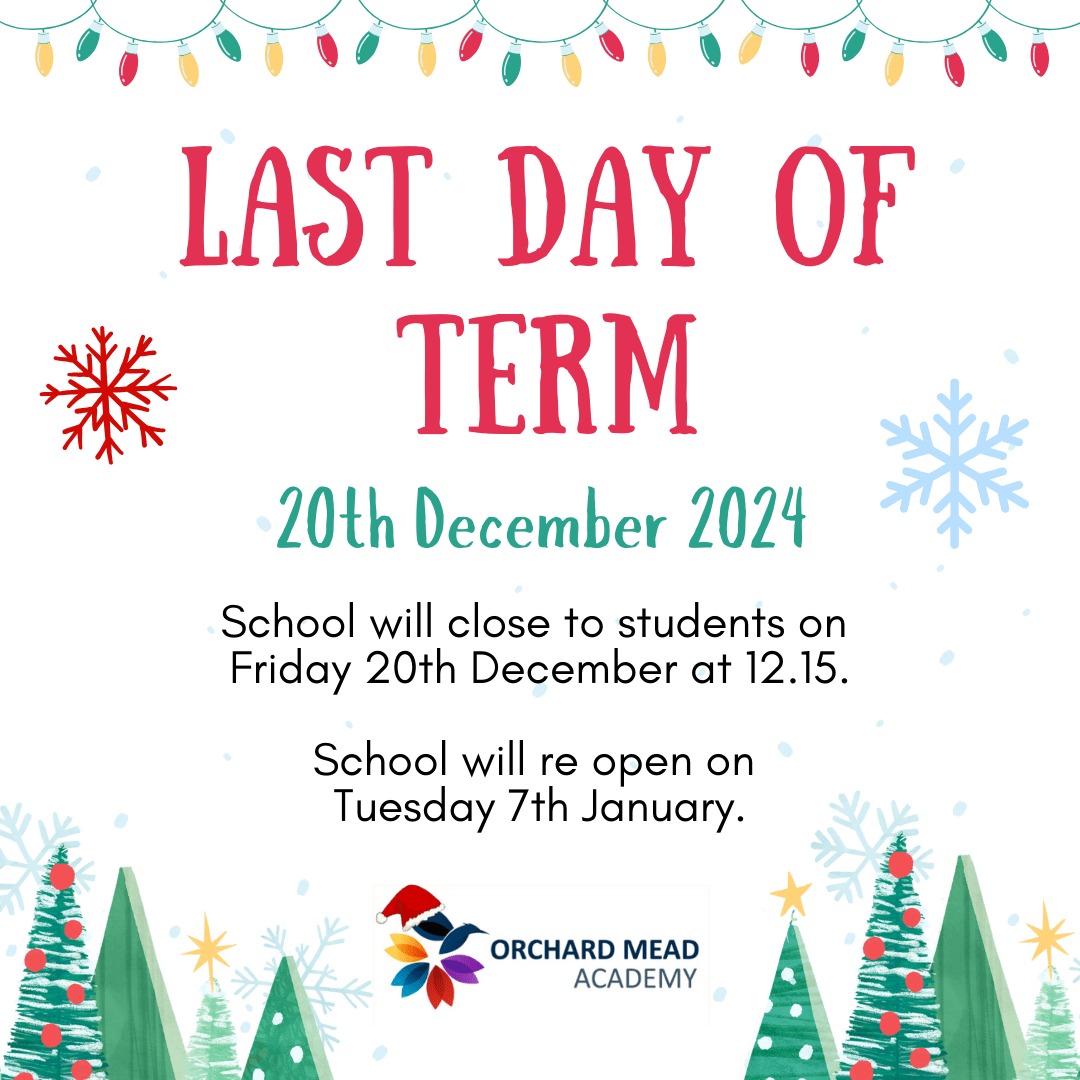Food preparation and nutrition is taught as part of the DT core curriculum subject, studied by all pupils at Orchard Mead Academy.
Food Preparation and Nutrition is an option for GCSE during Years 10 and 11.
Students will be taught food technology as part of the KS3 design technology curriculum
All Food Preparation and Nutrition students will be expected to complete a non-examined assessment worth 50% of the overall mark based on an individual research task. They will then use the theory and knowledge gained over the five years of study to complete an examination worth 50% of the overall mark to demonstrate their ‘core’ food and nutrition knowledge and understanding.
| Food Preparation and Nutrition | |
| Year 10: Half Term 1 | · Healthy Eating Models.
· The Eatwell Guide. · Dietary Needs and Different Life stages. · Nutrients – Macro and Micro · Practical Skills |
| Year 10: Half Term 2 | · Dietary Related Illnesses
· Food Provenance · Food Production · Practical Skills |
| Year 10: Half Term 3 and 4 | · Food Choices
· Food Choices – Religious Beliefs · Food Ethics · Practical Skills |
| Year 10: Half Term 5 + 6 | · Food Preservation
· Food Additives · Culinary Traditions · Practical Skills |
| Year 11: Half Term 1 | 1st September release of NEA Food Preparation Task.
· Research, analysis of task, identification of suitable recipes. |
| Year 11: Half Term 2 | · Research, skills trials to develop the skills needed to product high quality finished dishes.
· Recipe Costing. · Final 2 Course Practical Exam – 3 hour time limit. |
| Year 11: Half Term 3 | · Analysis and Evaluation of Final Products.
· Revision of all core principles and application of principles in examination styles. |
| Year 11: Half Term 4 and 5 | · Revision of all core principles and application of principles in examination styles. |
For information about enrichment clubs and revision clubs please visit our clubs page here.
Websites
https://www.ocr.org.uk/qualifications/gcse/food-preparation-and-nutrition-j309-from-2016/
https://www.foodafactoflife.org.uk/
https://www.lovefoodhatewaste.com/
https://www.ifst.org/lovefoodlovescience
https://www.bbc.com/bitesize/subjects/zdn9jhv
Co-curricular opportunities
Working alongside the STEM network of science, technology, engineering and maths to support learning from KS3 upwards.
Food technology has strong links with many subjects: childcare, PE, RE, science, languages and geography.
Stretch and challenge opportunities
The Design and Technology Department Twitter feed provides students with the opportunity to extend their learning and apply lesson content to real world examples.
In the school library there are a variety of fiction and non-fiction books which support the learning in KS3 and KS4 Design and Technology. Over the next academic year this will be extended to complement the new KS3 curriculum.
Within the Food Department there is also a list of recommended books, magazines, museums and cultural landmarks to research and visit.
P@h (practicals at home) is a homework tool designed for students to practice and hone skills learnt in lesson at home with an element of assessment embedded into the format.
Revision advice
There are a range of resources that students can use to support their revision including:
- Knowledge Organisers will be provided for each topic which students will be regularly tested on.
- GCSE Pod provides revision videos on each of the GCSE topics.
- Educake has a wide range of quizzes for each topic on the GCSE specification.
- Seneca learning is used in KS4 as a useful revision and learning tool which can be accessed and used at home and at school
https://www.senecalearning.com/
BBC Bitesize provides students with knowledge, tests and case studies which will complement their in-class examples.
Additional information
Additional support for KS4 is taken from the exam board endorsed textbook.
AQA Food Preparation and Nutrition GCSE
Author: Alexis Rickus, Bev Saunder and Yvonne Mackey Hodder Education 2017
An e-book version is available.
Subject Leader/s
Mr B Cave

